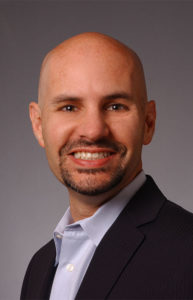New study finds probationers’ motivations predict how well they do on probation

People in the criminal justice system who are motivated to seek a better life stand a greater chance of completing probation and finishing treatment programs.
That’s the finding of a recent study by Scott Walters, PhD, and colleagues that examined the factors that motivate people to successfully complete probation and exit the justice system. The study was published in the January 2017 issue of Evaluation and Program Planning.

About two thirds of people in the criminal justice system abuse alcohol or drugs, but less than half ever complete treatment.
“Historically, the U.S. criminal justice system has relied on external factors to try and motivate people to comply with justice conditions, including increased fees, monitoring or jail time, but most people have a broader set of reasons as to why they want to exit the justice system, such as family, employment or improved quality of life,” said Dr. Walters, who serves as Professor and Chair of Health Behavior and Health Systems for UNTHSC’s School of Public Health.
“If we could identify these reasons ahead of time, we could do a better job in motivating people to comply with their probation requirements.”
To find those motivating factors, the research team created survey questions around two themes: “tangible loss,” focused on external and present-focused reasons to finish probation; and “better life,” focused on internal, future-oriented reasons.
More than 110 substance-using probationers from Dallas and Baltimore participated in the study. The average age was 35. Approximately two thirds were male.
“Tangible-loss reasons for wanting to complete probation are things like wanting to avoid fees and court costs; the time it takes to attend court hearings; having to check in with others; or being required to tell others about the probation, such as an employer,” Dr. Walters said. “On the other hand, people seeking a better life may want to set an example for others, make their families proud, relieve guilt or be able to move on with their lives in a positive way.”
Among those surveyed, “getting on with life” was cited as the top reason for wanting to complete probation (nearly 87 percent), followed by legal pressure (73.5 percent) and time (60 percent). Relationships and having freedom were important motivators for 55.8 percent of participants. About half of those surveyed indicated that finances were an important reason for complying with probation conditions.
“It turns out that people’s reasons for change predicted what they actually did on probation. People who chose more ‘better life’ reasons were more likely to go to treatment, and less likely to use drugs. On the other hand, ‘tangible loss’ reasons weren’t related to outcome at all. This kind of information can give us advance notice of who might do well or poorly on probation, and it can also serve as the basis for delivering more effective interventions. By highlighting internal, future-focused reasons, probation officers might be able to stimulate change early in the probation process,” Dr. Walters said. “When we tailored our online intervention trial based on these factors, people were quite positive about the perceived accuracy and helpfulness of such a program.”
Dr. Walters completed the study with UNT Health Science Center public health doctoral student Stephanie A. Spohr and Dr. Faye S. Taxman, University Professor, George Mason University.





Social media